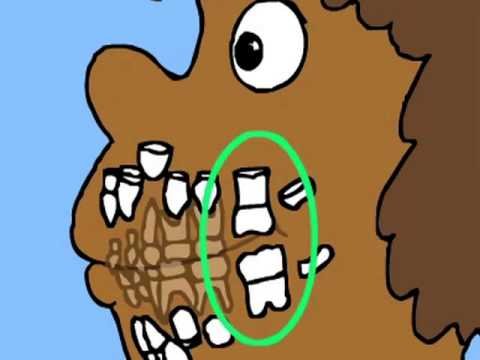At What Age Do Teeth Stop Growing?

Have you ever wondered at what age your teeth stop growing? Understanding the development of your teeth can provide insight into maintaining good oral health. In this article, we will explore the typical age at which teeth stop growing, factors that can affect tooth growth, and tips for keeping your teeth healthy for a lifetime.
At what age are your teeth fully grown?
By the age of 3, the average child has all 20 deciduous teeth, which will later make way for their permanent set. Between the ages of 6 and 7, the process of exfoliation begins as the permanent teeth start to emerge. By the time a person reaches around 21 years old, they typically have a full set of 32 permanent teeth, including wisdom teeth.
From the age of 3 when a child has all their baby teeth, to around 21 when their permanent teeth are fully grown, the development of teeth is a natural and gradual process. It is important to take care of your teeth from a young age to ensure they grow in healthy and strong, ultimately leading to a full set of 32 teeth by adulthood.
Do teeth continue to grow after the age of 18?
Yes, teeth do continue to grow after the age of 18. While the majority of adult teeth are already in place by this age, the wisdom teeth, also known as third molars, typically start to emerge during late teenage years or early twenties. This process can vary from person to person, with some individuals not experiencing the growth of wisdom teeth at all. In total, a full set of adult teeth will consist of 32 teeth, including these wisdom teeth that may develop later in life.
Do teeth continue to grow at the age of 25?
Yes, teeth do still grow at 25, specifically referring to wisdom teeth or third molars. These are the last permanent teeth to erupt, typically coming in between the ages of 17 and 25. It is not uncommon for wisdom teeth to erupt later in life, with some individuals experiencing this growth many years after the typical age range. Despite this, it is worth noting that a small percentage of the population, around 8% in the UK, may not have these third molars at all.
Unveiling the Truth: The Science Behind Tooth Growth
When it comes to tooth growth, the truth may surprise you. Many people believe that teeth stop growing once they reach adulthood, but the reality is quite the opposite. Teeth continue to grow throughout a person's life, albeit at a very slow rate. This process, known as secondary or tertiary dentin formation, helps to repair and protect the teeth from damage and wear. Understanding the science behind tooth growth can help individuals take better care of their oral health as they age.
The key to understanding tooth growth lies in the specialized cells within the dental pulp. These cells, called odontoblasts, are responsible for producing dentin, the hard tissue that makes up the majority of a tooth's structure. As the tooth is exposed to wear and tear, these cells continue to lay down new layers of dentin, gradually increasing the size of the tooth. This process is essential for maintaining the integrity and strength of the teeth over time, and it highlights the incredible ability of the body to continually repair and renew itself.
Ultimately, the science behind tooth growth reveals the remarkable resilience of the human body. Despite the constant use and potential for damage, teeth are able to adapt and grow throughout a person's life. By understanding the processes at work, individuals can take proactive steps to support their tooth growth and overall oral health. From maintaining good dental hygiene to seeking regular dental care, taking care of the teeth is essential for preserving their growth and function.
From Childhood to Adulthood: Understanding Tooth Development
From childhood to adulthood, tooth development is a fascinating and crucial process. During childhood, the primary teeth begin to emerge, setting the foundation for a lifetime of healthy smiles. As children grow, their primary teeth are gradually replaced by permanent teeth, signaling the transition into adulthood. Understanding this developmental journey is essential for maintaining proper oral hygiene and addressing any potential dental issues that may arise.
From the eruption of primary teeth to the emergence of permanent teeth, the process of tooth development is a complex and intricate journey. As children transition into adulthood, it is important to monitor the development of their permanent teeth and address any potential issues that may arise. By understanding the stages of tooth development, individuals can take proactive steps to maintain their oral health and ensure a lifetime of beautiful and healthy smiles.
In summary, understanding the age at which teeth stop growing is important for maintaining oral health throughout one's lifetime. While the majority of tooth development occurs during childhood and adolescence, teeth continue to change and shift slightly into early adulthood. It is crucial to continue practicing good oral hygiene and visiting the dentist regularly to ensure the health and longevity of your teeth. By staying informed about dental development, individuals can take proactive steps to preserve their oral health and enjoy a confident smile for years to come.